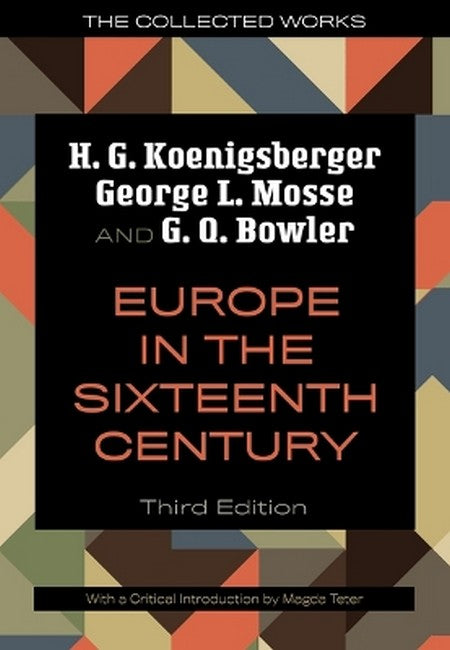H. G. Koenigsberger (1918-2014) was a professor of history at King's College London and the author of numerous books. George L. Mosse (1918-99) was a legendary scholar, teacher, and mentor. A refugee from Nazi Germany, in 1955 he joined the Department of History at the University of Wisconsin-Madison, where he was both influential and popular. Mosse was an early leader in the study of modern European cultural and intellectual history, the study of fascism, and the history of sexuality and masculinity. Over his career, he authored more than two dozen books. G. Q. Bowler is a senior fellow at the Frontier Centre for Public Policy and was trained by H. G. Koenigsberger. Magda Teter is a professor of history and the Shvidler Chair of Judaic Studies at Fordham University.
Request Academic Copy
Please copy the ISBN for submitting review copy form
Description
List of Illustrations A Note on the Present Edition Acknowledgments Preface to the Second Edition, 1989 Preface to the Third Edition, 2025 A Critical Introduction by Magda Teter Introduction 1 Economic Life 2 Social Life 3 Towns and Cities 4 Christianity, Popular Culture, and Humanism 5 The Reformation 6 A Continued Reformation 7 The Catholic Reformation 8 Empires 9 The Monarchies 10 Western Europe in the Age of Philip II 11 Political Theory and Religious Strife 12 Sixteenth-Century Literature 13 From Renaissance to Baroque: Art, Music, and Science Bibliographic Essay Appendix A: Sixteenth-Century Chronology Appendix B: Genealogical Charts Notes Index
"Beyond the disciplinary breadth, Europe in the Sixteenth Century was also innovative in gesturing toward a broader geography of Europe." - Magda Teter, from the introduction

